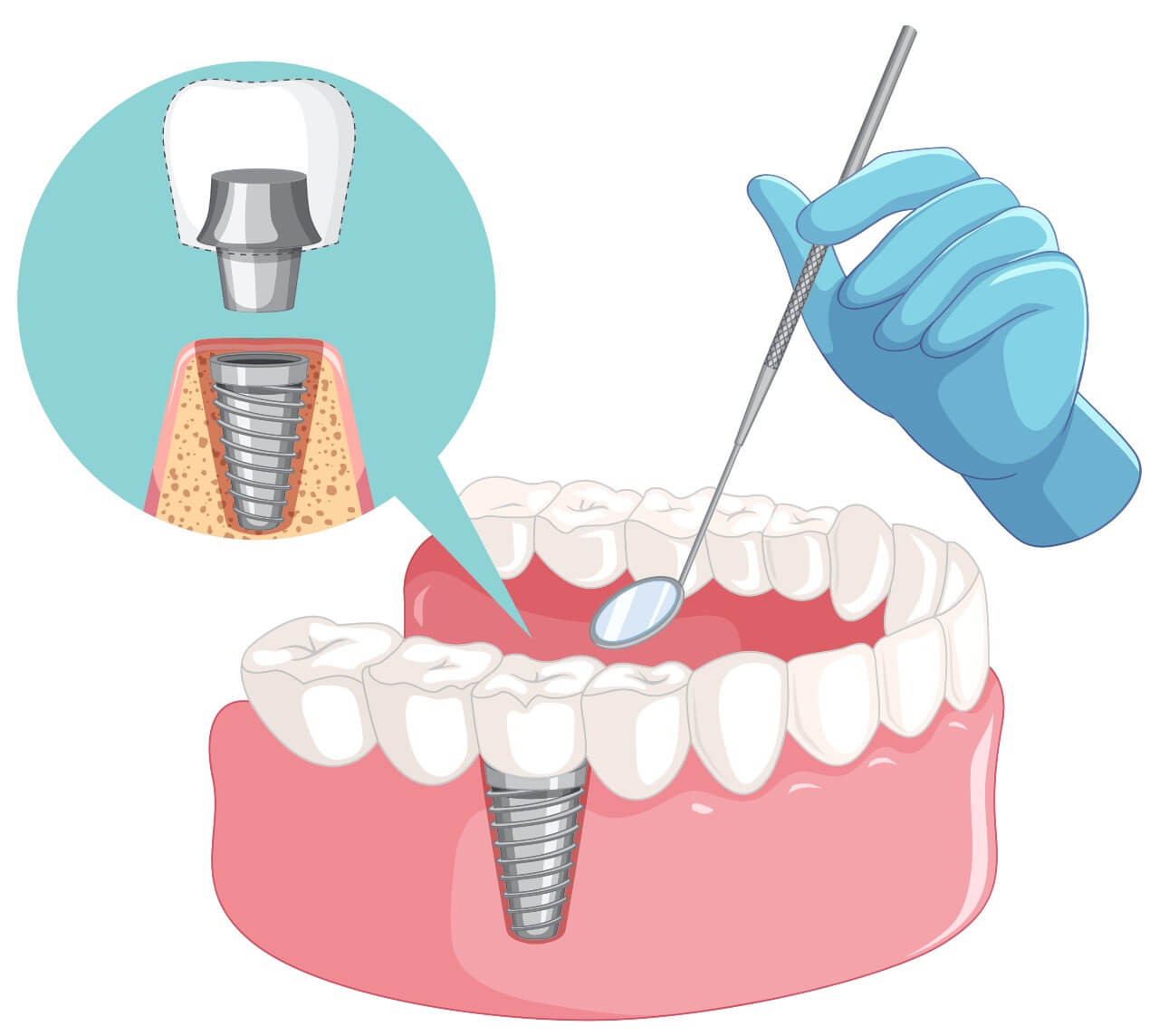Factors Influencing the Success of Dental Implant Treatment

Factors Influencing the Success of Dental Implant Treatment
- 15 February 2025
- 2023 views
Discover the factors influencing the success of dental implant treatment. Read now for tips to improve your treatment outcome!
This content is for informational purposes only and does not replace medical advice, diagnosis, or treatment. Please consult a healthcare professional for any health concerns.
Table of Contents
Dental implant treatment provides permanent and aesthetic solutions for missing teeth. Replacing lost teeth can improve both general health and self-confidence. However, the success of implant treatment is not solely dependent on the procedure itself. Several factors can impact the outcome of the treatment.
What is a Dental Implant?
A dental implant is an artificial tooth root that is placed in the jawbone to replace missing natural teeth. These screws, surgically inserted into the gum, are typically made of titanium. The implant fuses with the jawbone to create a strong foundation. Once aesthetic crowns are placed on top, they look and function like natural teeth.
Stages of Dental Implant Treatment
Dental implant treatment follows specific stages, all of which must be executed with precision and care.
- Initial Examination and Planning: The process begins with an initial consultation. The dentist assesses the jaw structure, overall health, and oral conditions. Techniques like X-rays and CT scans are used to evaluate the condition of the jawbone. Proper planning is critical for the success of the treatment.
- Surgical Procedure: Implants are typically placed under local anaesthesia. The dentist inserts the screws into the jawbone, carefully selecting the best angle and depth.
- Healing Process: It takes time for the implant to bond with the jawbone, a process that may last several months. This osseointegration is a crucial factor for the success of the treatment, requiring patience during the healing phase.
- Placement of Final Crown: Once the implant has fused with the bone, the aesthetic crown is placed. This crown functions like a natural tooth and is custom designed to suit the patient’s needs.
Key Factors for a Successful Treatment
Several factors influence the success of dental implant treatment. Understanding these will help ensure a more favourable outcome.
- Condition of the Jawbone: The success of dental implants depends heavily on the health of the jawbone. If there isn’t enough bone, the implant may fail or the success rate may be lower. Conditions like bone loss may necessitate additional treatments. The adequacy of the bone is assessed during the initial stages of treatment.
- Patient’s Health: The patient’s overall health is another critical factor. Conditions such as diabetes and heart disease can slow the healing process. Therefore, implant treatment should be tailored to each patient’s individual health needs.
- Age: While younger patients generally have stronger, healthier jawbones, older patients can also achieve successful results with implants. Age can affect the process, but it does not necessarily prevent a successful outcome.
- Experience of the Dentist: One of the most important factors in implant success is the experience of the dentist. A skilled dentist can manage the treatment process with proper planning and precision, significantly increasing the success rate.
- Oral Hygiene: Oral hygiene is crucial to the success of implant treatment. A good oral care routine reduces the risk of infection and accelerates the healing process. Regular brushing and flossing are essential during and after the treatment.
Common Mistakes in Dental Implant Treatment
Certain common errors during implant treatment can negatively impact the outcome. Being aware of these can help improve the treatment process.
- Inadequate Planning: Successful implant treatment starts with proper planning. Failing to thoroughly examine the jaw structure can lead to complications. A well-planned treatment ensures better results.
- Failure to Follow Treatment Guidelines: Not following the dentist’s recommendations during implant treatment can jeopardize success. Patients must pay attention to rest and adhere to the dentist’s advice, especially during recovery.
- Neglecting Oral Hygiene: Dental implants require meticulous cleaning. Poor oral hygiene increases the risk of infection, reducing the lifespan of the implant. Proper oral care ensures long-term success.
Dental implant treatment is an effective solution for tooth loss. However, many factors affect the outcome, including the condition of the jawbone, the patient’s health, oral hygiene, and the dentist’s expertise. To ensure a successful treatment, it is essential to start early, maintain good hygiene, and work with a professional dentist.
If you are considering dental implant treatment for a healthy and aesthetic smile, consulting with an experienced dentist will benefit you.







